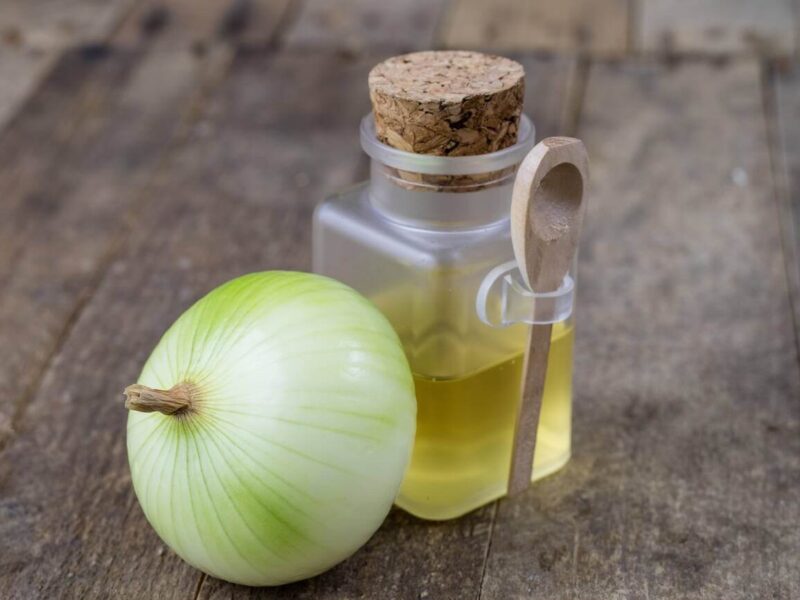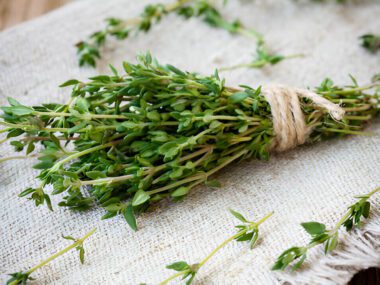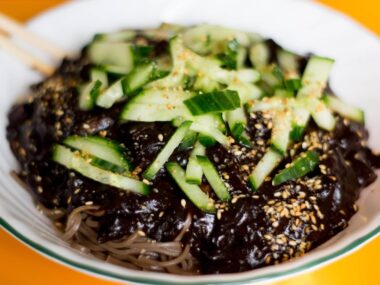Hey food lovers, are you in the mood to cook something delicious but realized you’re all out of onion juice? No worries, we’ve all been there. But instead of ditching your dish idea altogether, stick around because I’m going to share my tried-and-true onion juice substitutes that will save your meal.
Whether you’re in a rush and skipped the grocery store or simply ran out unexpectedly, not having onion juice can throw a wrench in your plans. But rather than sulking over a missing ingredient, I’m here to let you in on some sneaky swaps that will fool even the biggest onion fans at your table. From pungent powders to crunchy allium alternatives, I’ll show you how to easily replace that onion zest without sacrificing any flavor.
So if you’re ready to stop stressing over a missing condiment and start cooking up something you’ll savor instead, then keep reading to discover my favorite foolproof onion juice fakes. No more botched recipes – just tasty tricks to transform what you have on hand into delicious dishes. Your taste buds will never guess you improvised!
Best Substitutes for Onion Juice
1. Garlic
If there’s one ingredient that’s as savory and versatile as onions, it’s garlic. With a flavor profile that’s similar yet still distinct, minced or crushed garlic can stand in beautifully for onion juice in many recipes.
Don’t be afraid to use more garlic than a recipe calls for onion juice either – its taste is potent but mellows when cooked. Sauté it in oil or butter until fragrant and softly browned for an easy onion-y punch. This caramelized garlic adds depth without the strong bite of raw garlic.
You can also try roasted garlic for a mellow sweetness. Just peel cloves, toss with oil, and roast until very soft. Smash into a spread and use anywhere you’d use onion juice, like on pizza, pasta, or in sandwich spreads. Its silky texture mimics the juiciness of onion too.
If using raw, go ahead and use more than the onion juice amount to get that mellowed onion savor. The grassy heat will dissipate some in the cooking process. Whichever form you choose, garlic whisks bold flavor into everything from soups and stews to salad dressings and veggie dishes.
2. Shallots
Another allium all-star that can take onion juice’s place is the shallot. These bulbous beauties have a mellow complexity reminiscent of both onions and garlic.
Mince a couple shallots as you would onion and add them to the recipe in place of juice. Their flatter flavor melds subtly into dishes rather than taking center stage. Sauté shallots gently in butter for a sweet oniony base for seafood stew or roast them whole with potatoes.
You can also use shallots raw like onion in salads or slaws. Their flavor really sings when pickled too. Simply simmer sliced shallots in seasoned vinegar until translucent; use the pickled shallots or brine in place of onion juice.
As a bonus, shallots boast greater nutrition than onions too. High in antioxidants and vitamins, they provide anti-inflammatory support. So feel good about using them as your onion juice secret weapon!
3. Onion Powder
For instant onion flavor in a pinch, reach for onion powder. This shelf-stable spice is made by dehydrating and grinding up whole onion bulbs.
A little onion powder goes a long way, so start with 1⁄4 to 1⁄2 teaspoon in place of 1 tablespoon onion juice. Its potency allows you to sprinkle it directly into recipes for immediate impact.
Rub it onto chicken, fish or veggies before roasting for savory crust. Stir it into rice or pasta dishes, soups, and casseroles. I even add a pinch to homemade popcorn or crackers for snacktime zing.
Since powder retains onion’s essence well, it’s great for long-simmered recipes where you want background flavor that lasts. Just be careful not to use too much or it can taste harsh.
Pro tip: mix the powder with a touch of oil, broth or other liquid before adding if mixing into wet fillings or dips so it distributes smoothly. Onion powder lends robustness wherever you need an onion juice substitute in a pinch!
Its compact form means it stays fresh for ages too. So keep some on hand and you’ll never want for onion essence again.
4. Dried Onion Flakes
For a textured twist on powder, opt for dried onion flakes. These are simply thinly sliced onions that have been dehydrated into light, crumbly bits.
Use flakes anywhere you’d use onion juice as a topping: scattered on chili, salads, potato skins, or French fries. They impart sweetness with a satisfying crunch.
I like mixing a tablespoon or two into burgers, meatloaf or corn bread batter for oniony goodness in each bite. The flakes soften during cooking but don’t melt away completely.
For a crunchy snack, toss them with olive oil and toss onto homemade veggie chips as they roast. Or stir into hummus, bean dip or salsa.
Making your own flakes lets you control the color and size. Simply slice onions thick or thin, lay on a baking sheet and dry at 200°F for 8-12 hours, flipping halfway. Store in an air tight container.
Dried flakes are the perfect substitute if you want onion textures and tenderness in addition to flavor. Reach for them when you want onions present and accounted for.
5. Onion Salt
If you want intense onion savor with minimal effort, reach for onion salt. This powerhouse seasoning blend infuses robust onion essence thanks to its mixture of salt and powdered onion.
A pinch adds serious flavor to anything from roasted meats and veggies to popcorn, deviled eggs, and potato dishes. I also love sprinkling it onto avocado toast, garlic bread, and into homemade salad dressings.
Unlike regular salt, onion salt lends savory-sweetness in addition to sodium. Use 1⁄4 to 1⁄2 as much as plain salt in recipes since it delivers more wallop per grain.
When substituting for onion juice, start with 1⁄2 teaspoon onion salt in place of 1 tablespoon juice in cooked dishes. Add more to taste if you want bolder onion presence.
Its concentrated goodness means no chopping or measuring fresh onion. Just shake it on as needed whenever a craving for onion zest strikes. Onion salt ensures you’re never without onion’s soul-satisfying savor.
6. Garlic Powder
While garlic powder may seem like an unusual choice, its pungent essence can absolutely mimic onion’s mellow notes when used judiciously.
Sprinkling 1⁄4 teaspoon powder in place of 1 tablespoon onion juice gives warmth without being overly sharp. I love adding it to mashed potatoes, rice pilaf, homemade salad dressings and veggie dips.
You can also mix it into ground meat or chicken before forming patties or meatballs. The powder bakes into the whole with crispy oniony flair.
Be lighter handed if using fresh versus dried herbs as garlic powder is very concentrated. And just like its fresh clove cousin, the potent taste mellows when cooked into dishes.
7. Fresh Onions
While not a direct substitute for onion juice, chopped or sliced fresh onions can stand in admirably when onion juice is called for in a recipe. Here are some tips for using fresh onions:
Dice or thinly slice the onion and add it to the dish as it cooks. You’ll likely need 1-2 fresh onions for each 1/4 cup of onion juice called for.
Cook the onions until soft and translucent before continuing with the rest of the recipe. This allows them to release their juices and meld into the other ingredients.
For recipes like dressings or dips, purée the cooked onions in a food processor or blender until smooth. Use the resulting “onion pulp” in place of juice.
You can also juice fresh onions yourself. Roughly chop 3-4 onions, place in a juicer or food processor, and blend or process until juiced.
Store fresh onions properly by keeping them dry and in a cool, dark place. They’ll last 1-2 weeks. You can also freeze chopped or sliced onions for several months.
FAQs
Can onion powder replace onion juice?
Yes, onion powder makes a good substitute for onion juice in most recipes. Start with 1/4 to 1/2 teaspoon of powder in place of 1 tablespoon of juice. The flavor is more concentrated so use less.
Can a whole onion replace onion juice?
Whole onions can work but won’t be as juicy. Dice or mince the onion and add it to the dish as it cooks. You may need to increase the amount of onion used compared to juice.
Can dried onion replace onion juice?
Dried onion flakes or onion powder are ideal replacements for onion juice. They add flavor without extra moisture. Use 1/4 to 1/2 teaspoon flakes/powder per 1 tablespoon juice. Rehydrate dried onion first if needed.
How long do onion substitutes last?
Onion powder and garlic powder can last 6-12 months stored in a cool, dark place. Dried onions and shallots may mold after 6 months. Freeze shallots to extend their shelf life to 1 year. Refrigerated fresh onions will last 1-2 weeks.
Do onion substitutes affect taste as much?
While onion substitutes won’t replicate the texture and flavor of fresh onion juice perfectly, they can absolutely deliver onion’s signature savory-sweet essence. The key is using the right amount and accounting for their concentrated nature. With some experimenting, you can find a great substitute for any recipe.
Can I substitute shallots for onion juice?
Yes, shallots make a delicious substitute for onion juice. Use 2-3 minced shallots for every 1/4 cup of onion juice called for. Shallots have a milder flavor than onions.
What if I’m allergic to onion and garlic?
If you have an onion or garlic allergy, look for alternatives without alliums like leek or scallion. You can also use very small amounts of onion powder or garlic powder. Seasonings like celery salt or herbes de Provence add savory flavor without onion/garlic.
How do I store fresh onion substitutes?
Store shallots, leeks and scallions in the fridge in a plastic bag poked with holes for air flow. They’ll last 1-2 weeks. Keep dried onion flakes and powders in a cool, dark place for long shelf life of 6-12 months.
Can I double the amount of substitute for onion juice?
Generally no – onion substitutes have a more concentrated flavor than fresh onion juice. Doubling the amount could make the dish too strongly flavored. Stick to the recommended ratios and amounts listed. Start with less and add more to taste if needed.
Do onion substitutes work for caramelizing onions?
Onion powder or flakes won’t caramelize in the same way as fresh onions. For dishes where onions are the star ingredient, it’s best to use chopped fresh or frozen onions if possible. Shallots or leeks can work too with longer cooking.
Conclusion
In the end, the best onion juice substitute depends on your exact recipe and what flavors or textures you’re looking for. While none will replicate fresh onion juice perfectly, with a bit of practice you’ll be able to match or mimic that signature savory-sweet essence.
Whether you go with an potent powder, mellow minced shallot, or caramelized garlic bulb, these onion alternatives ensure you’re neverWithout options when the recipe calls for juice but your fridge says otherwise.
By keeping staples like onion, garlic and shallot powders on hand, you’ll always have the ability to improvise delicious dishes without scrapping your plans. And with a variety of substitutes to choose from, you may even discover new ingredient combos you love.
The key is understanding how each substitute differs from fresh onion juice and adjusting amounts appropriately. With some experimenting, you’ll gain confidence working without actual measured juice. Your taste buds will thank you!
So don’t let an unexpected missing ingredient stop you from cooking. Reach for one of these tried-and-true onion juice fakes instead. They’ll save any recipe from being derailed and ensure you can still savor savory homemade meals any time inspiration strikes. After all, improvisation is where creativity happens in the kitchen.



